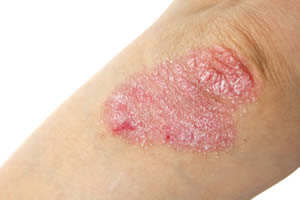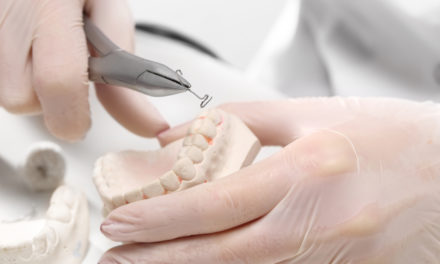Do you have a red scaly crusty rash on your skin? It could be eczema. The word eczema can be scary to most people, but it is just a term used to describe the skin condition. There are different types of eczema that can cause you to itch and feel uncomfortable. The visible red rash is also difficult to deal with since most people choose to hide it when in public. The sudden appearance of the rash has many people asking “What is eczema?”
Common Types of Eczema
- Allergic Contact Dermatitis – This type of eczema forms due to contact with allergens such as nickel, fragrances, and poison oak.
- Hereditary Eczema – This type of eczema is inherited from ancestors. It is also referred to as atopic dermatitis.
- Dandruff and Facial Seborrheic Dermatitis – Visible signs of dandruff on the scalp and face are considered symptoms of this type of eczema.
- Dry Skin Eczema – This type of eczema is also referred to as nummular and asteatotic eczema. Itchy skin and dry patches are the first sign of this type of eczema.
- Irritant Dermatitis – This type of eczema is caused by frequent exposure to irritants such as dish soap.
Who can get eczema?
Anyone ranging from babies to the elderly can develop eczema at any time in their life. It is wise to inspect your children’s skin on a regular basis to detect the skin ailment early. Anyone that suspects they have eczema should see a dermatologist immediately.
Environmental Causes
- Dry Air – Living in a climate that has dry air year-round
- Prolonged Water Exposure – Taking long baths or showers that have water that is too hot
- Low Humidity – The winter season is the most common time of year people develop eczema due to exposure to low humidity.
Common Skin Irritants
- Perfume
- Makeup
- Soap
- Cleansers
- Solvents
- Dust
- Cigarette smoke
- Chlorine
- Sand
Treatment
Treatment depends on the cause of eczema. If you are exposed to a skin irritant you should immediately stop using it or avoid exposure. You will also need to heal your skin by treating eczema. A dermatologist will determine the best treatment for your specific type of eczema.
Many people self-diagnose and treat their skin ailments. This can cause the condition to become worse. Always seek the assistance of a professional before treating skin conditions. Sometimes you might think it’s one type of issue and it’s something completely different. If you think you have eczema, make an appointment with a dermatologist immediately.
Georgette Rodriguez-Vazquez, M.D., M.P.H., F.A.A.D.
 Dr. Georgette Rodriguez-Vazquez is a board certified dermatologist who provides her patients with only the most advanced and up to date dermatologic care available. She received her undergraduate degree from Duke University. She then received her medical degree from the University of Florida. After completing her internship in Surgery at the University of Florida/Shands Hospital, Dr. Rodriguez-Vazquez completed her dermatology training at the University of Miami where she currently is voluntary Assistant professor in the Department of Dermatology and Cutaneous Surgery. Dr. Rodriguez-Vazquez has published numerous chapters and papers in well-respected textbooks and peer reviewed journals. She is a diplomate of the American Board of Dermatology and the American Society for Mohs Surgery. She specializes in complete dermatology services including medical, cosmetic, and pediatric dermatology. She is fluent in Spanish. For furher information please contact Dr. G at 305.667.5480
Dr. Georgette Rodriguez-Vazquez is a board certified dermatologist who provides her patients with only the most advanced and up to date dermatologic care available. She received her undergraduate degree from Duke University. She then received her medical degree from the University of Florida. After completing her internship in Surgery at the University of Florida/Shands Hospital, Dr. Rodriguez-Vazquez completed her dermatology training at the University of Miami where she currently is voluntary Assistant professor in the Department of Dermatology and Cutaneous Surgery. Dr. Rodriguez-Vazquez has published numerous chapters and papers in well-respected textbooks and peer reviewed journals. She is a diplomate of the American Board of Dermatology and the American Society for Mohs Surgery. She specializes in complete dermatology services including medical, cosmetic, and pediatric dermatology. She is fluent in Spanish. For furher information please contact Dr. G at 305.667.5480




